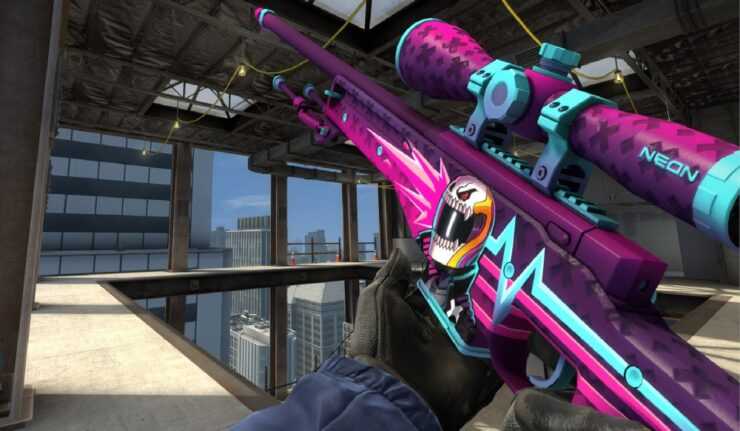Introduction:
Counter-Strike: Global Offensive (CS:GO) is a highly competitive first-person shooter that demands precision, strategy, and teamwork. Within the CS:GO community, there exists a wide range of skill levels, from casual players to professional athletes. In this blog post, we will delve into the CS:GO skill gap, exploring the factors that contribute to it, its implications for players, and strategies for bridging the gap.
Individual Skill and Mechanical Ability:
At the heart of the skill gap in CS:GO lies individual skill and mechanical ability. Some players possess exceptional aim, reflexes, and game sense, allowing them to make split-second decisions and execute precise shots. These players have mastered the mechanics of the game, including recoil control, movement, and grenade usage. The skill gap often manifests in the form of duels, where highly skilled players have a significant advantage over their less experienced opponents.
Game Sense and Tactical Understanding:
Beyond mechanical ability, game sense and tactical understanding also contribute to the skill gap in CS:GO. Skilled players possess a deep understanding of map layouts, strategic rotations, and effective positioning. They can predict enemy movements, read the flow of the game, and make informed decisions based on available information. This advanced game sense allows them to outmaneuver and outthink opponents, gaining a significant advantage in engagements.
Communication and Teamwork:
Effective communication and teamwork are critical in CS:GO, and the skill gap often manifests in these areas as well. Highly skilled players tend to have better communication skills, allowing them to relay crucial information, make quick callouts, and coordinate strategies with teammates. They understand the importance of teamwork, positioning themselves to support their teammates and capitalize on opportunities. In contrast, players with a lower skill level may struggle with communication and coordination, hindering their ability to compete against more skilled opponents. https://csgoradar.com/
Experience and Practice:
The skill gap in CS:GO is also influenced by the amount of experience and practice that players invest in the game. Skilled players often have thousands of hours of gameplay under their belts, dedicating time to practice their aim, study professional matches, and refine their strategies. They have developed muscle memory, honed their decision-making abilities, and learned from their mistakes. In contrast, less experienced players may lack the same level of game knowledge and may still be developing their skills.
Competitive Environment and Exposure:
The competitive environment plays a significant role in shaping the skill gap in CS:GO. Players who consistently participate in competitive matches, tournaments, and leagues have a higher likelihood of encountering skilled opponents and facing tougher challenges. This exposure to higher-level play accelerates their skill development, pushing them to improve and adapt. Conversely, players who primarily engage in casual gameplay or lower-level matches may have limited exposure to high-skill opponents, resulting in slower skill progression.
Bridging the Skill Gap:
While the CS:GO skill gap may seem daunting, there are strategies for bridging it:
Practice and Dedication: Consistent practice and dedication are key to improving your skills. Devote time to aim training, practice maps, and reviewing demo replays. Focus on specific areas of improvement, such as recoil control or grenade usage, and set measurable goals to track your progress.
Analyze Professional Gameplay: Watch professional matches and study the gameplay of skilled players. Analyze their decision-making, positioning, and team coordination. Learn from their strategies and incorporate their tactics into your own gameplay.
Seek Guidance and Feedback: Seek guidance from experienced players or join a mentorship program. Actively seek feedback on your gameplay and be open to constructive criticism. Coaches and more skilled teammates can provide valuable insights to help you bridge the skill gap.
Play with and Learn from Skilled Players: Surround yourself with skilled players and actively seek opportunities to play alongside them. Playing with and against higher-level opponents challenges you to improve and adapt to their gameplay. Observe their strategies, communication, and decision-making to learn from their expertise.
Join Competitive Communities and Leagues: Engage with competitive communities and participate in leagues and tournaments. These environments provide opportunities to face skilled opponents, gain exposure to higher-level play, and challenge yourself to grow as a player.
Conclusion:
The CS:GO skill gap is a natural part of the game’s competitive nature. Individual skill, game sense, communication, experience, and practice all contribute to this gap. However, with dedication, practice, guidance, and exposure to higher-level play, it is possible to bridge the skill gap. Remember, the journey to improvement is as important as the destination. Embrace the challenges, learn from skilled players, and focus on continuous growth. With perseverance and a commitment to self-improvement, you can narrow the skill gap and elevate your gameplay in CS:GO.



